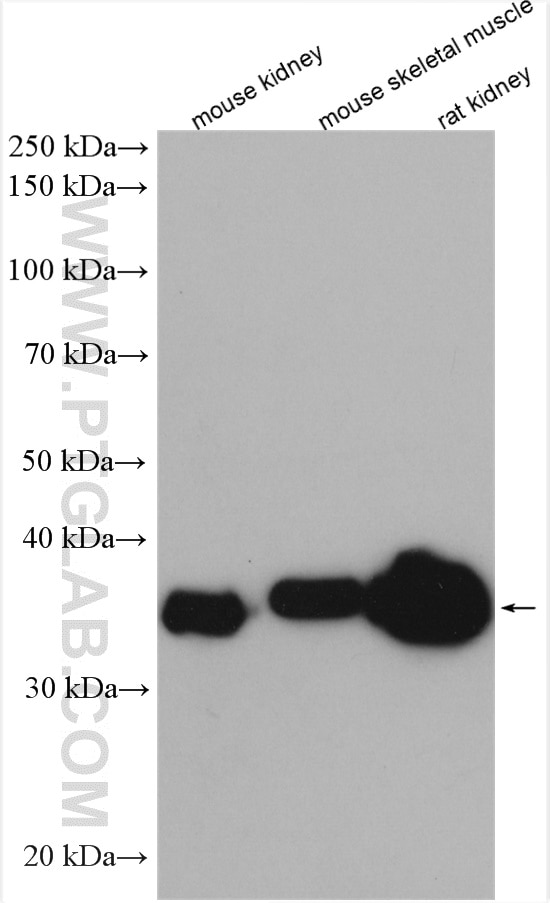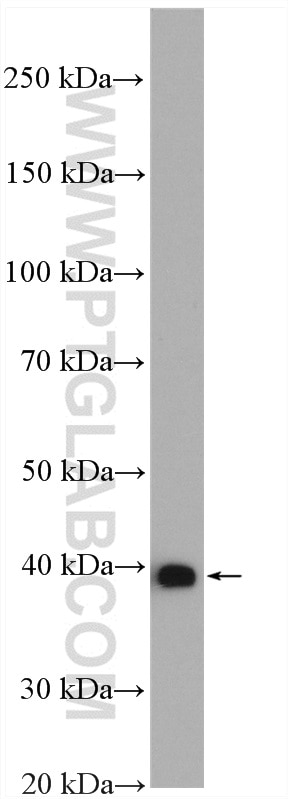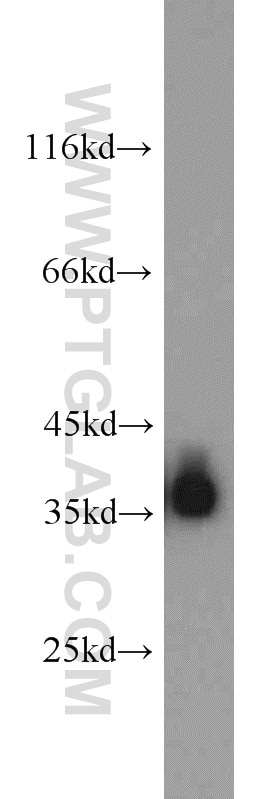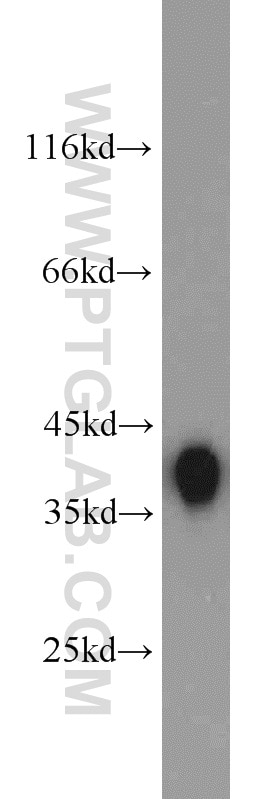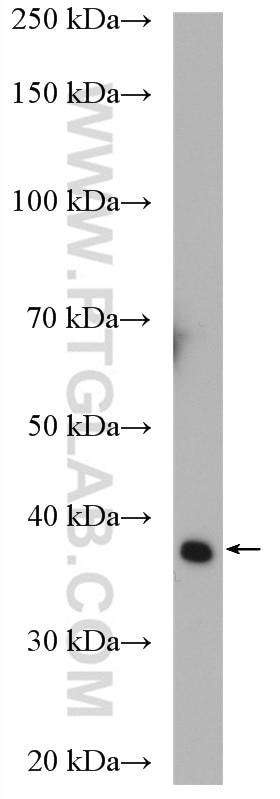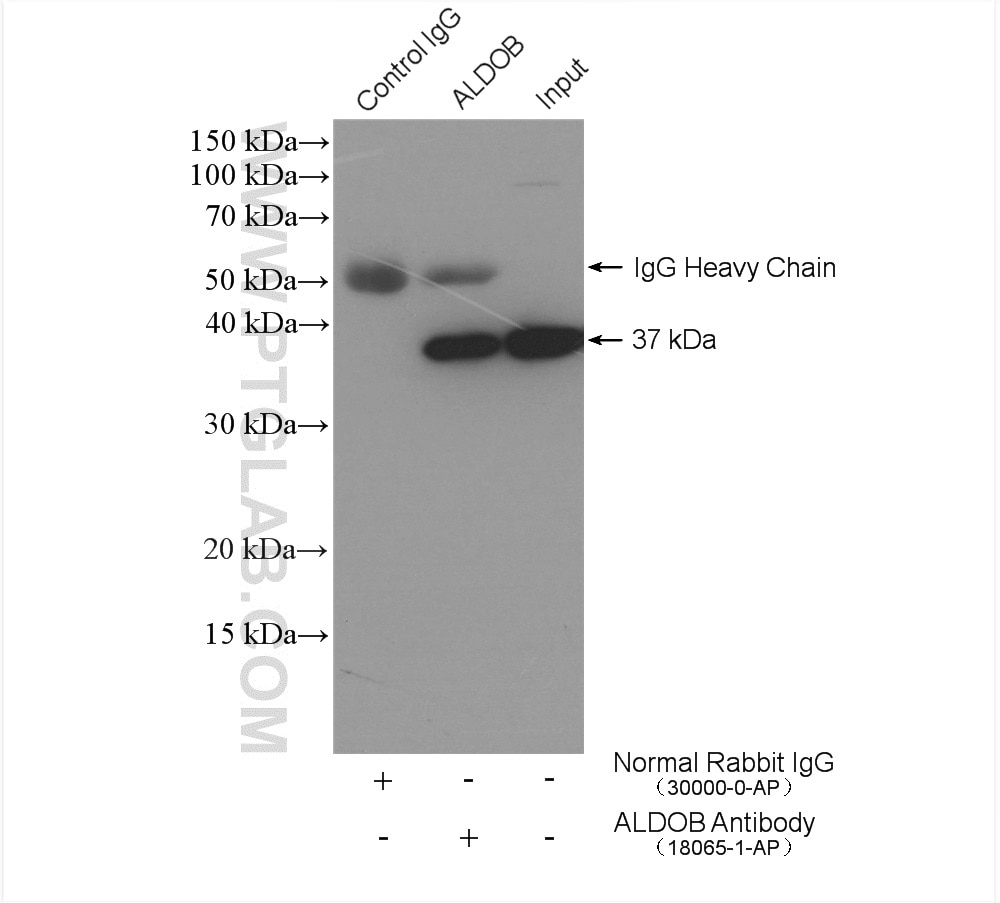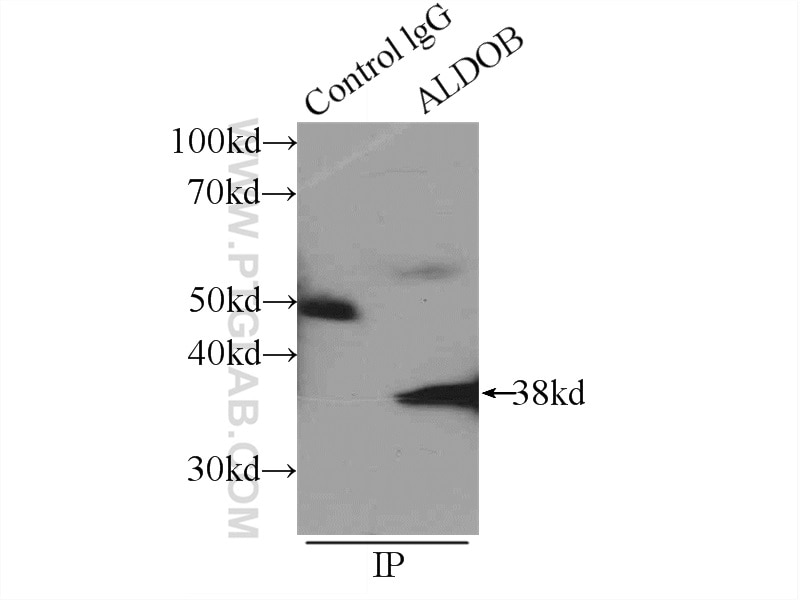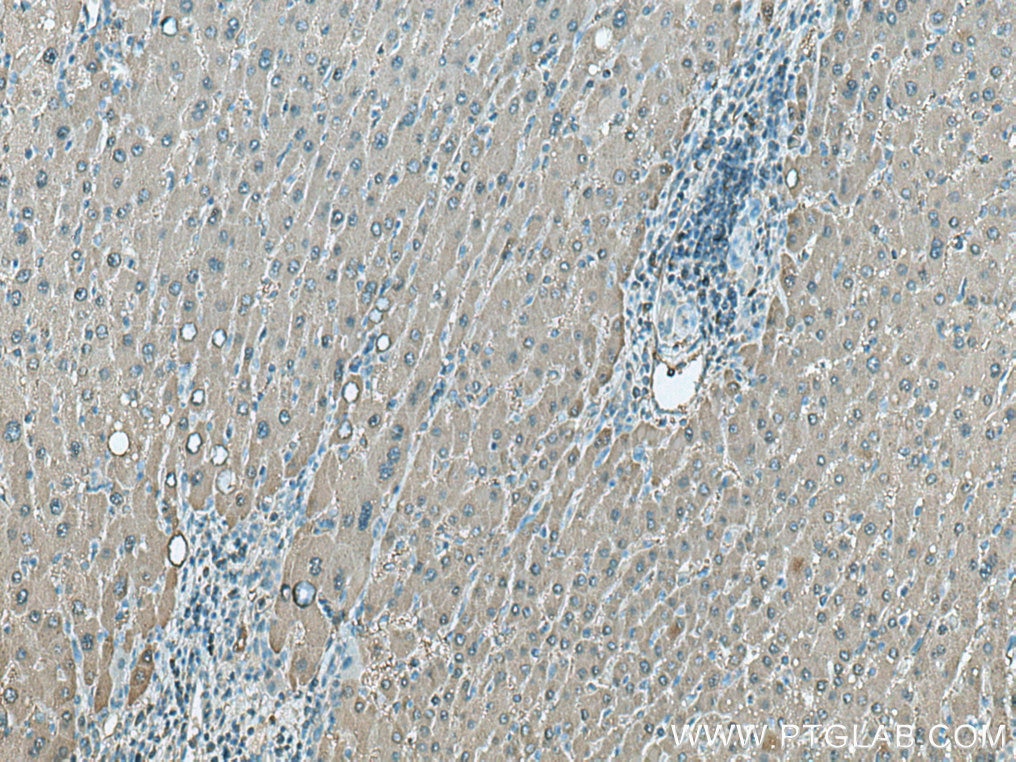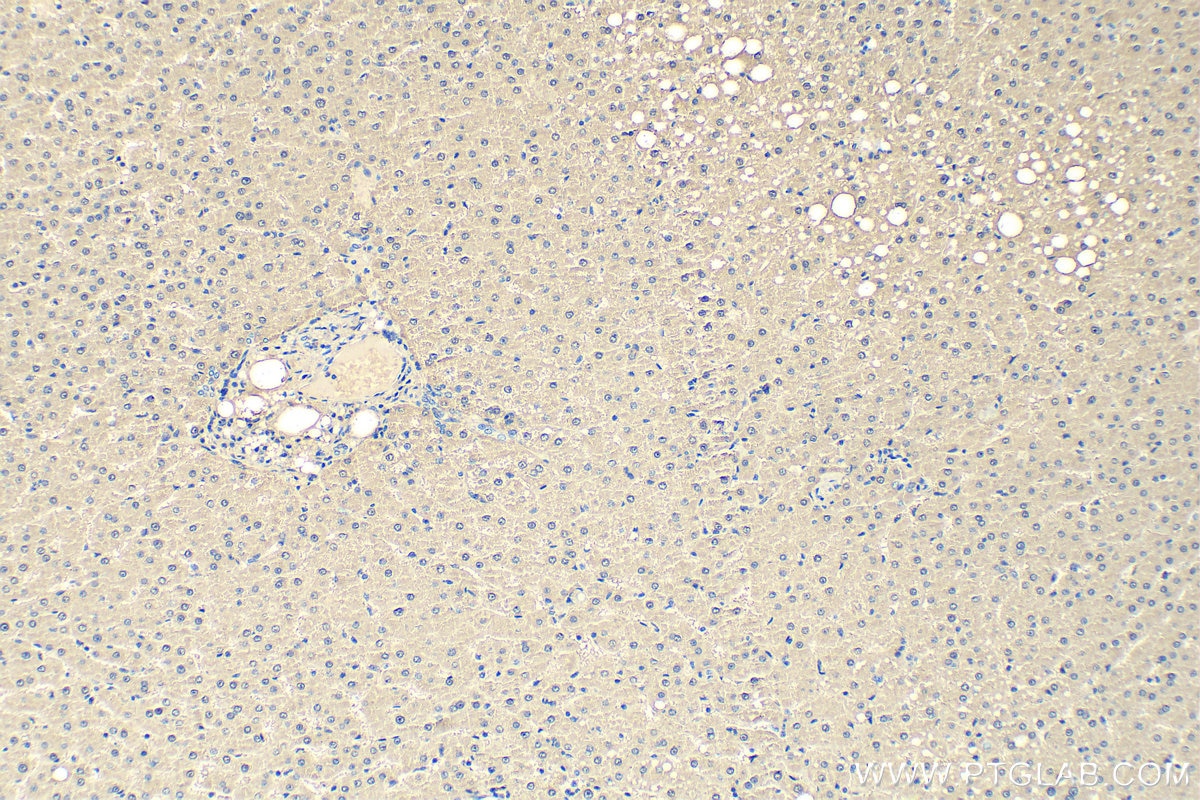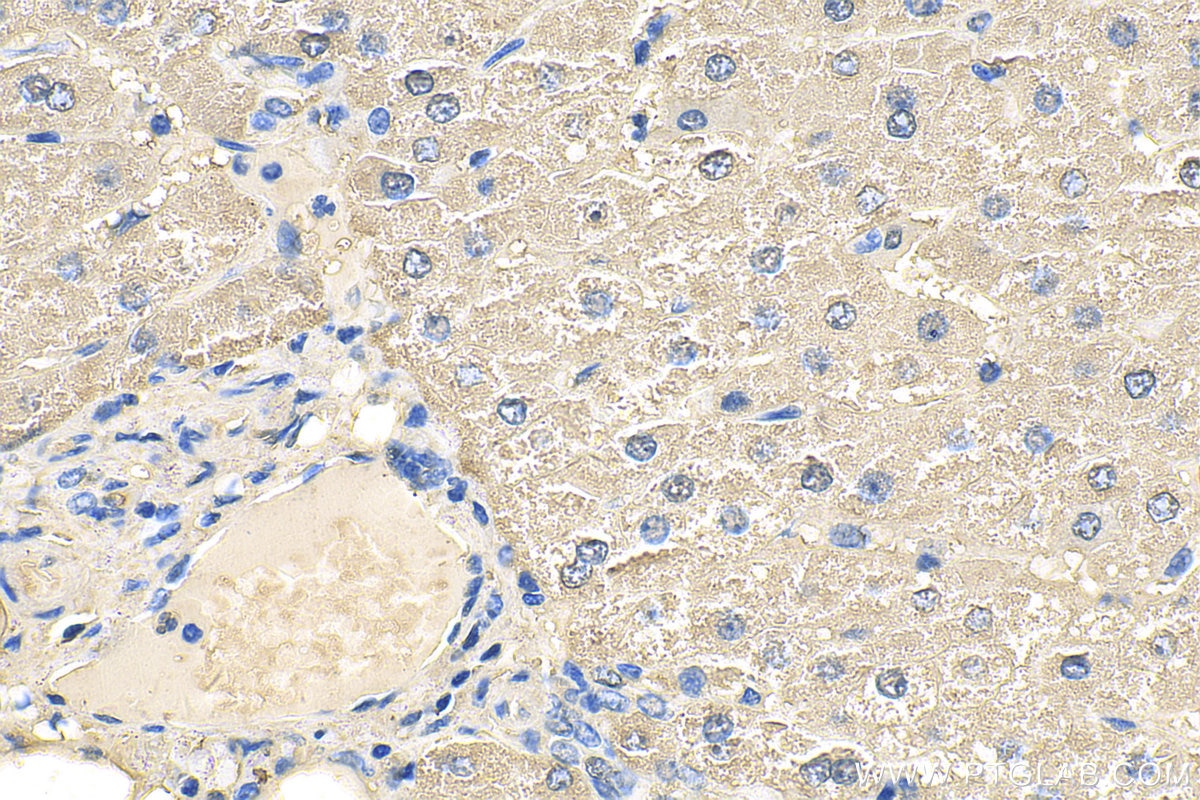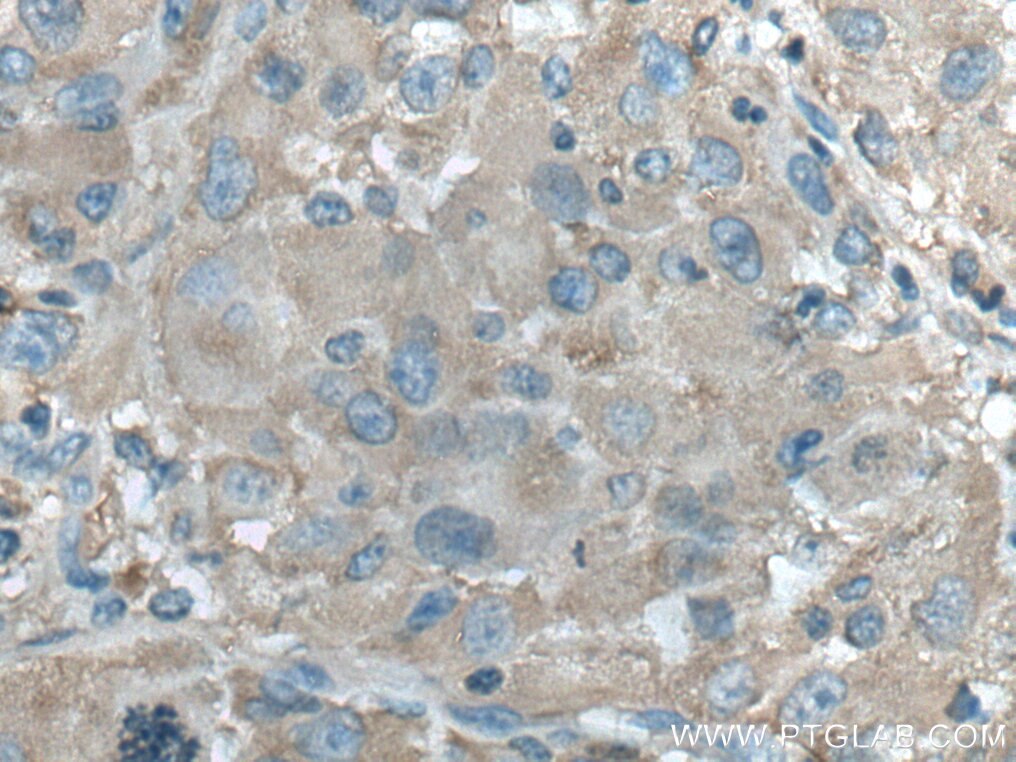Tested Applications
| Positive WB detected in | mouse kidney tissue, mouse liver tissue, mouse brain tissue, Raji cells, mouse skeletal muscle tissue, rat kidney tissue |
| Positive IP detected in | mouse brain tissue, mouse kidney tissue |
| Positive IHC detected in | human liver cancer tissue, human liver tissue Note: suggested antigen retrieval with TE buffer pH 9.0; (*) Alternatively, antigen retrieval may be performed with citrate buffer pH 6.0 |
Recommended dilution
| Application | Dilution |
|---|---|
| Western Blot (WB) | WB : 1:2000-1:16000 |
| Immunoprecipitation (IP) | IP : 0.5-4.0 ug for 1.0-3.0 mg of total protein lysate |
| Immunohistochemistry (IHC) | IHC : 1:50-1:500 |
| It is recommended that this reagent should be titrated in each testing system to obtain optimal results. | |
| Sample-dependent, Check data in validation data gallery. | |
Published Applications
| KD/KO | See 4 publications below |
| WB | See 33 publications below |
| IHC | See 5 publications below |
| IF | See 5 publications below |
| IP | See 3 publications below |
Product Information
18065-1-AP targets ALDOB in WB, IHC, IF, IP, ELISA applications and shows reactivity with human, mouse, rat samples.
| Tested Reactivity | human, mouse, rat |
| Cited Reactivity | human, mouse, rat |
| Host / Isotype | Rabbit / IgG |
| Class | Polyclonal |
| Type | Antibody |
| Immunogen |
CatNo: Ag12695 Product name: Recombinant human ALDOB protein Source: e coli.-derived, PGEX-4T Tag: GST Domain: 1-316 aa of BC029399 Sequence: MAHRFPALTQEQKKELSEIAQSIVANGKGILAADESVGTMGNRLQRIKVENTEENRRQFREILFSVDSSINQSIGGVILFHETLYQKDSQGKLFRNILKEKGIVVGIKLDQGGAPLAGTNKETTIQGLDGLSERCAQYKKDGVDFGKWRAVLRIADQCPSSLPIQENANALARYASICQQNGLVPIVEPEVIPDGDHDLEHCQYVTEKVLAAVYKALNDHHVYLEGTLLKPNMVTAGHACTKKYTPEQVAMATVTALHRTVPAAVPGICFLSGGMSEEDATLNLNAINLCPLPKPWKLSFSGVARLQTRRQPRRLL Predict reactive species |
| Full Name | aldolase B, fructose-bisphosphate |
| Calculated Molecular Weight | 316 aa, 35 kDa |
| Observed Molecular Weight | 35-40 kDa |
| GenBank Accession Number | BC029399 |
| Gene Symbol | ALDOB |
| Gene ID (NCBI) | 229 |
| RRID | AB_2273968 |
| Conjugate | Unconjugated |
| Form | Liquid |
| Purification Method | Antigen affinity purification |
| UNIPROT ID | P05062 |
| Storage Buffer | PBS with 0.02% sodium azide and 50% glycerol, pH 7.3. |
| Storage Conditions | Store at -20°C. Stable for one year after shipment. Aliquoting is unnecessary for -20oC storage. 20ul sizes contain 0.1% BSA. |
Background Information
Fructose-1,6-bisphosphate aldolase is a glycolytic enzyme that catalyzes the reversible conversion of fructose-1,6-bisphosphate to glyceraldehyde 3-phosphate and dihydroxyacetone phosphate.Vertebrates have 3 aldolase isozymes, aldolase A (ALDOA), B (ALDOB), and C (ALDOC). Deficiency of this enzyme ALDOB causes an accumulation of fructose-1-phosphate after fructose intake, which results in toxic symptoms like vomiting, hypoglycemia, jaundice, elevated liver enzymes and hepatomegaly(PMID:22375183). This antibody may detect ALDOA.
Protocols
| Product Specific Protocols | |
|---|---|
| IHC protocol for ALDOB antibody 18065-1-AP | Download protocol |
| IP protocol for ALDOB antibody 18065-1-AP | Download protocol |
| WB protocol for ALDOB antibody 18065-1-AP | Download protocol |
| Standard Protocols | |
|---|---|
| Click here to view our Standard Protocols |
Publications
| Species | Application | Title |
|---|---|---|
Nature Fructose-1,6-bisphosphate and aldolase mediate glucose sensing by AMPK.
| ||
Cancer Cell Proteogenomic characterization identifies clinically relevant subgroups of intrahepatic cholangiocarcinoma. | ||
Nat Commun O-GlcNAc modification of leucyl-tRNA synthetase 1 integrates leucine and glucose availability to regulate mTORC1 and the metabolic fate of leucine. | ||
Cell Res cMyc-mediated activation of serine biosynthesis pathway is critical for cancer progression under nutrient deprivation conditions. | ||
Mol Ther Single-Cell Transcriptome Analysis Reveals Intratumoral Heterogeneity in ccRCC, which Results in Different Clinical Outcomes. | ||
Front Med Aldolase B attenuates clear cell renal cell carcinoma progression by inhibiting CtBP2 |

